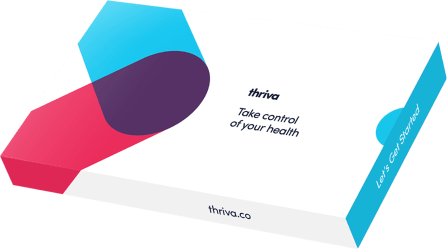The DASH diet is shown to not only reduce blood pressure but also protect against osteoporosis, heart disease, stroke, cancer, and diabetes.
What is the DASH Diet?
Hypertension is when one has abnormally high blood pressure. Globally, there are approximately 59 million people with hypertension, which accounts for a large proportion of mortalities in Europe.
The DASH diet was initially devised 20 years ago by the National Heart, Lung and Blood Institute (NHLBI), with the help of a number of US universities, in response to the increasing prevalence of high blood pressure (hypertension).
What does it include?
The DASH diet promotes the consumption of foods that are high in protein, fibre, potassium, calcium, and magnesium such as:
- fruits
- vegetables
- beans
- nuts
- whole grains
- low-fat dairy

It also limits the consumption of saturated fat, sugar, and salt, though it isn't specifically a low sodium diet. The DASH diet also puts a focus on portion size and ensuring the individual gets the right amount of nutrients.
Though not designed as a weight loss program, this is also often observed due to the consumption of healthier foods. Find out more about the composition of the DASH diet.
How effective is the DASH diet?
The effectiveness of the DASH diet has been studied extensively since its creation, with many trials showing a consistent reduction of blood pressure in a diverse range of both hypertensive and prehypertensive patients.
The primary study of the DASH diet was devised as a controlled feeding study, in which the diet was compared to a typical US diet. The results showed reductions in both systolic and diastolic blood pressure, of 5.5 and 3.0 mmHg respectively, which were seen after as little as two weeks.
These changes were observed in highly diverse groups, however, the diet appeared to be particularly effective for those with existing hypertension. As a result, the DASH diet has been consistently part of national blood pressure guidelines since.
Over the past 20 years, investigation of the DASH diet in overweight and obese individuals with elevated blood pressure demonstrated that exercise and weight loss combined with the DASH diet led to even larger blood pressure reductions, as well as greater improvements in vascular and autonomic function. As a reduction in blood pressure is a key goal for diabetic individuals, the DASH diet is also promoted for this group.
Why does it work so well?
The reduction of sodium and the increase of foods rich in nutrients as part of the DASH diet are what is accredited for it being so successful. The link between salt and blood pressure has been repeatedly demonstrated in observational studies, however, increased potassium is shown to negate some of the effects of a high sodium diet.
Though results have been observed after just short-term adherence to the diet, a lifelong commitment is ideal in order to prevent or manage hypertension, as is the case with many diets.
Is it more than just a tool to lower blood pressure?
Though the effect of the DASH diet on blood pressure is undisputed in the literature, its impact on cardiovascular risk factors is less clear.
Investigation of whether greater adherence to dietary guidelines lowers CVD risk in the Dutch population showed that of three diet quality indexes, only the DASH score was significantly associated with reduced risk of CVD, coronary heart disease, and stroke.
Upon further analysis of 20 studies with a total of 1,917 participants with interventions ranging from 2 to 24 weeks, significant reductions in total and LDL cholesterol were also observed along with a reduction in blood pressure.
The reduction in risk factors resulted in an approximate Framingham risk score reduction of 13%, which is a validated predictor of the likelihood of a cardiac arrest in the subsequent 10 years. The researchers conducting this analysis concluded that the DASH diet is an effective nutritional tool for the prevention of cardiovascular disease.
What does this all mean?
Putting a focus on your entire diet composition rather than a single nutrient, such as salt, often results in greater protective effects.
The DASH diet is shown to not only reduce blood pressure but also protect against osteoporosis, heart disease, stroke, cancer, and diabetes. This points to similar conclusions found in studies of other protective diets and again reiterates that we should be looking at our overall diet quality when considering long term disease prevention.
















